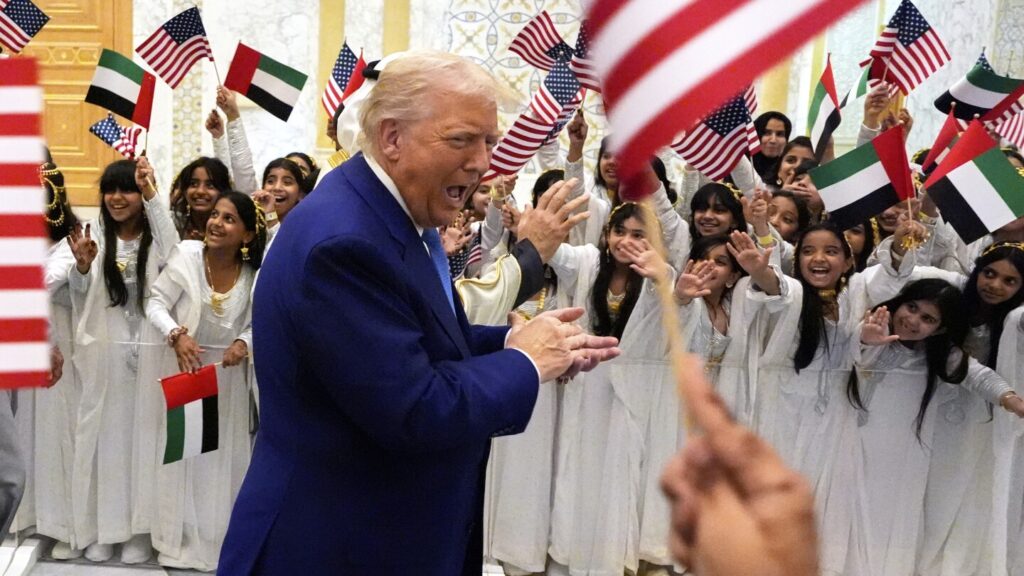President Donald Trump’s recent foreign trip to Saudi Arabia, Qatar, and the United Arab Emirates showcased his pragmatic and transactional approach to global affairs, emphasizing economic and security partnerships over traditional values. Trump marveled at the opulence of Gulf state rulers, refraining from public calls for improved human rights practices, a departure from typical presidential visits to the Middle East.
During his trip, Trump faced challenges such as Putin’s reluctance to engage in peace talks with Ukraine, despite Trump’s urging for dialogue. In a surprising move, Trump signaled a shift in U.S. policy towards Syria by recognizing the new government led by Ahmad al-Sharaa, whom he praised following a meeting facilitated by Turkish President Erdogan and Saudi Crown Prince Mohammed bin Salman.
Throughout his trip, Trump made grandiose statements, including exaggerated claims about investment deals and economic achievements, sparking skepticism. Despite hopes for progress in resolving conflicts in Gaza and Ukraine, tangible outcomes were scarce, with Trump attributing ongoing conflicts to his electoral defeat in 2020.
Ethical concerns followed Trump as he navigated his Middle East visit, with questions raised about potential conflicts of interest related to his family’s business ties in the region. Trump’s acceptance of a luxury plane from Qatar and other business dealings raised constitutional and national security worries, though he defended his actions as cost-effective for taxpayers.
Overall, Trump’s foreign trip underscored his unconventional diplomatic style, focusing on strategic interests and partnerships while sidestepping traditional diplomatic norms and ethical considerations.

